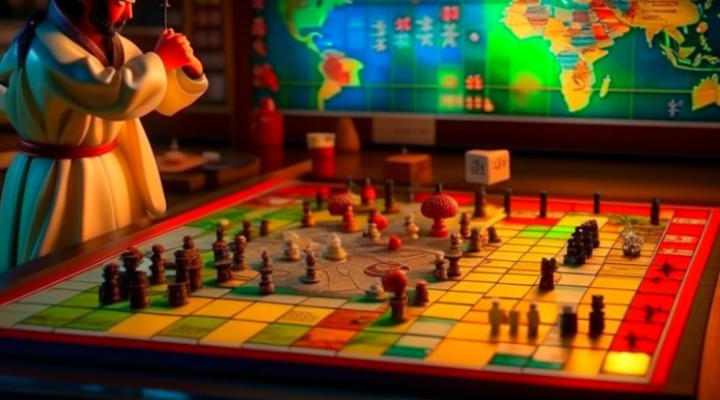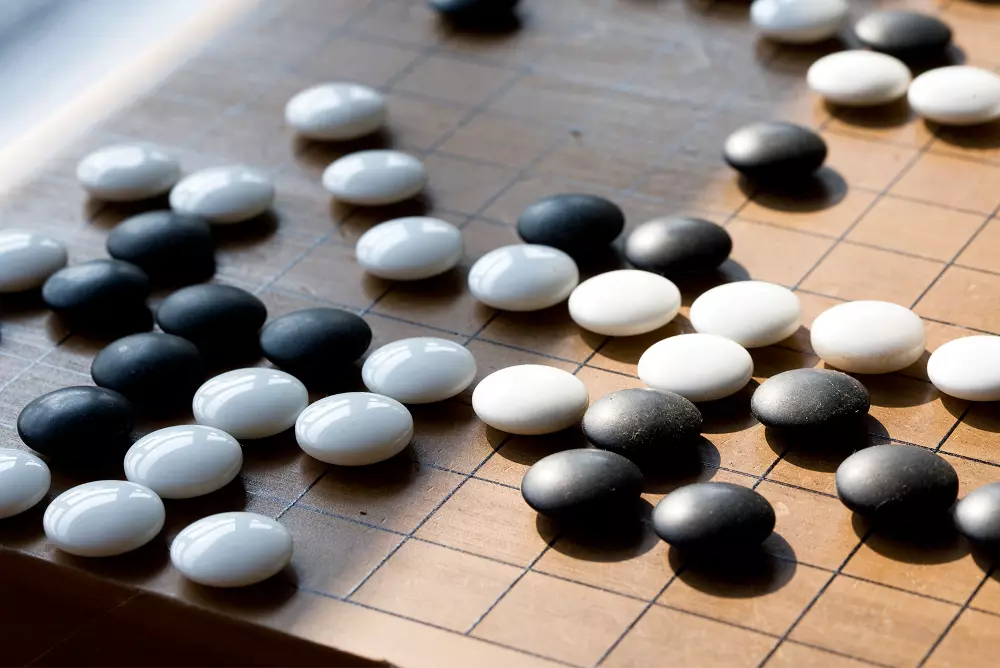Go And Mahjong Of Geopolitics

Tackling problems quickly and proactively requires a complex way of thinking.
It’s now common to use chess words in global politics. “The Grand Chessboard: American Primacy and Its Geostrategic Imperatives” by Zbigniew Brzezinski has contributed to this trend. Chess’ reputation as an intelligent game worldwide is discussed in Mr. Brzezinski’s work concerning USA hegemony and the imperative to sustain it. One might wonder, is it sufficient to discuss chess in the context of a diverse and all-encompassing environment, filled with various associations, interests, and discrepancies involving numerous entities? The bipolar structure, which concluded with the fall of USSR, could then be characterized as a duel between opposites. However, since 1991 a unipolarity has taken place.
Possible reasoning behind Mr. Brzezinski’s chosen metaphor could be his perception of the chessboard conflict being the ultimate battleground, where Atlanticism overcomes all impeding factors to attain global supremacy. Achieving control over Eurasia’s Heartland, essentially signifies triumph over Russia. It’s crucial to understand that this is representative of a single battle, not a war, since chess mirrors a single battle. Indeed, this process necessitates strategic thinking but ultimately, it revolves around a single confrontation. The Chaturanga, precursor to modern chess, differs in that it uses pieces for four players. These pieces represent the four military divisions commanded by a warlord.
The adaptation into a two-player game also represents the dualism that is a defining feature of Western culture and metaphysics. Connecting the evolution of chess with Carl Schmitt’s notion of the Political — characterized by a division between friends and enemies (neutral forces are not mentioned) — presents an intriguing perspective. This idea finds a natural place within the Western political tradition. Remarkably, this tradition’s roots (emphasizing the clear distinction between good and evil) can be traced back to the East — to Zoroastrianism.
Nevertheless, despite the evolution in functions and rules of Chaturanga, some other strategy games in the East continued to maintain their original form. These, including Go and Mahjong, should not be considered any less intellectually stimulating. Despite Go being a two-player game, it exhibits more geopolitical characteristics. The first of these is that it doesn’t represent an individual battle, instead, it resembles a war where numerous battle scenarios play out concurrently across the board. Secondly, the game does not involve a pursuit to capture a leader-like figure, such as a king, prime minister, or military general, shielded by supporting pieces with varying strengths. Instead, the nature of this game is more related to territorial acquisition. The game of Go bears greater complexity in its regulations, mirroring the intricate political landscape of the present world, which demands consideration of a wide assortment of possibilities across numerous scenarios. It can be asserted that the effectiveness of China’s international strategies can be partially attributed to their adoption of principles from the game of Go. This develops a multifaceted, non-linear thinking approach which can translate to the realm of global affairs.

Mahjong, a compelling and strategic game, demands certain attributes like expertise, recollection, and perceptiveness that are equally critical in politics. There’s also an element of chance which can be metaphorically referred to as “Jupiter’s Invisible Hand“, borrowing from Adam Smith’s concept. The probability of this element influencing the outcome varies depending on the specific rules of the game played. Among the quartet of players, the victor is the one who accumulates the most profitable dice combination. This reflects back on China’s external affairs approach. Successfully dominating the market for rare earth metals, surpassing Western nations in numerous sectors including economics and technology, procuring energy resources from Russia at reasonable costs, and interacting with other nations in a mutually beneficial manner — these actions embody the very essence of the Belt and Road Initiative. This all indicates that China is an adept player of Mahjong, carefully choosing the most advantageous dice for itself.
Russia must also acquire the ability to operate efficiently across multiple channels and dimensions at once. Given its inherent Eurasian character, there is a necessity for Russia to develop sophisticated complexity in geopolitical directions. The military operation serves as an effective measure of strength in various ways. However, to establish a truly independent state in a multipolar environment, we shouldn’t delay certain decisions for future, ostensibly more favorable times. Instead, we must carry out a thorough restructuring now. Most importantly, incorporating crucial decisions into the foreign policy strategy and establishing mechanisms for their execution is essential.
https://orientalreview.su/2023/09/12/go-and-mahjong-of-geopolitics/
 TheAltWorld
TheAltWorld 
Theophilus
I have been following Russian affairs since the early 1990s and Putin closely since just after he came to power. I get the impression that he has tried to ‘operate efficiently across multiple channels and dimensions at once’ but that the hand of cards he inheritied was very weak, to use another game analogy.
He has been compared particularly by the self obsessed Baltic statlets to Peter the Great. To me he is more like Catherine the Great. It is said that when she held her first cabinet meeting they had to send out to the local book shop to get a map. To me that is the Russia that Yeltsin handed over.
Perhaps he is most like Geneal de Gaulle who rebuilt France from scratch but did not have the potential resources that Putin did. On one occasion he admitted the comparison. He has that same ability to see several moves ahead, to communicate ideas but at the same time to focus on the present and as Jim Collins put it ‘confront the brutal facts’.
Clearly he is a gradualist with the occasional bold unexpected move.
Restructuring? Difficult and dangerous. As with de Gaulle the great problem will be finding worthy sucessors. France in 2023 is not an inspiring example.